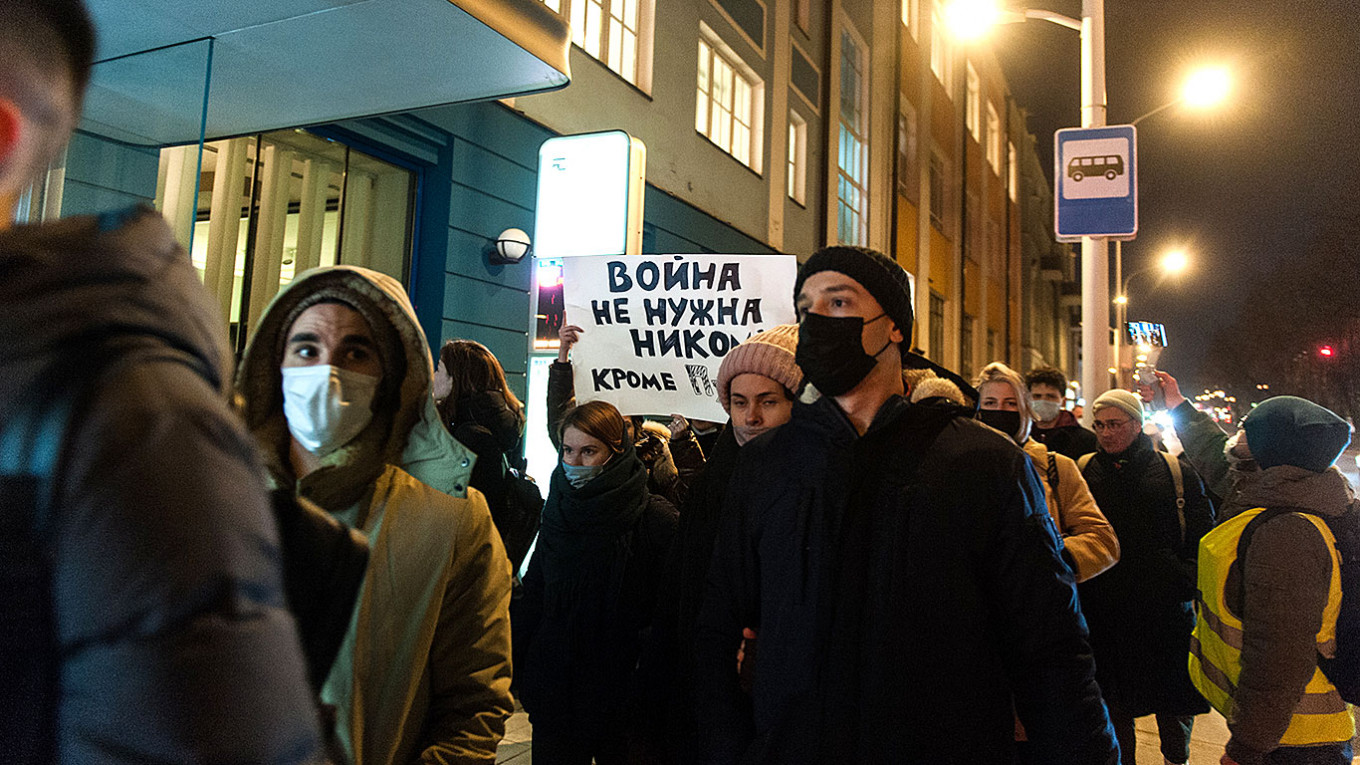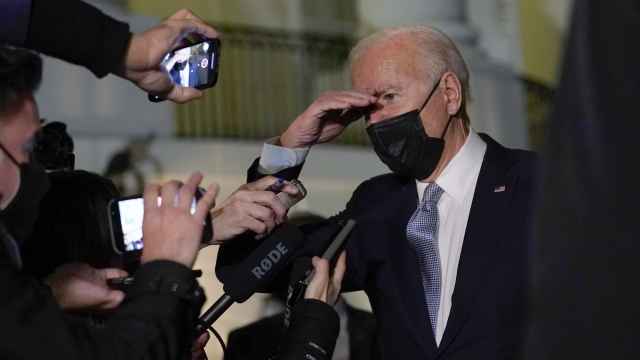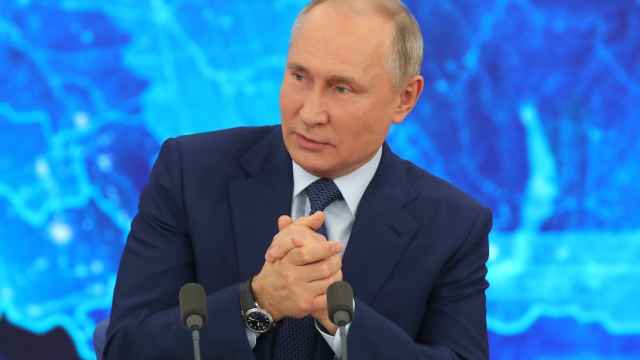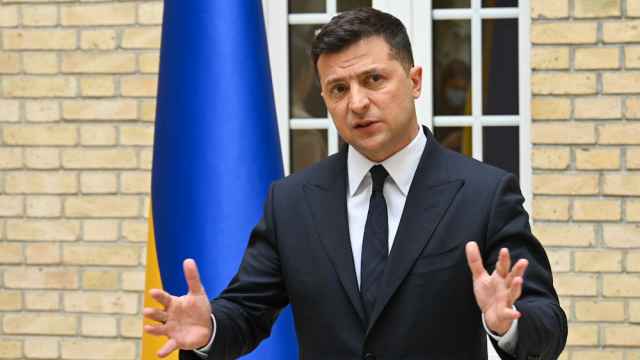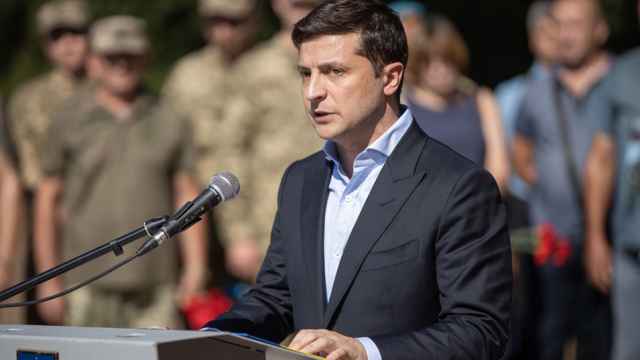As Kyiv burns, there’s a chill wind blowing. Wholly understandable and justified rage at Vladimir Putin’s vicious assault on Ukraine and the cronies and officials who empowered and encouraged him — such as by mouthing empty propaganda lines at Monday’s now-infamous Security Council meeting — is also metastasising into anger at ordinary Russians. From the toxic miasmas of Twitter to proposals for official policy, there seems to be a sense that they are complicit in Putin’s war crimes.
That is despite the fact that Russia’s elections have been rigged throughout. That thousands of brave Russians have been facing the certainty of arrest — and all that means, from criminal convictions to beatings — to protest the war. That 170 experts and journalists signed an open appeal to stop the war. That more than 150 municipal deputies, largely from Moscow and St. Petersburg, have also publicly condemned the war.
Yet meanwhile, Latvia has announced a suspension of visas for Russians, and Sammy Mahdi, Belgium’s junior minister for asylum and migration, has asserted that “Russians are not welcome here” and so “a general visa ban for Russians should not be a taboo.”
At the risk of further establishing my reputation in some quarters as a naïve softy, let me suggest that this is neither morally right nor, for that matter, good statecraft. It is clear that the West is not willing to bomb in the name of punishing the Kremlin for its actions; maybe — along with equally necessary other means such as sanctions — it should consider the merits of love bombing Russia, too.
Many Russians did indeed once think Putin was the leader Russia needed, and in fairness many Western leaders once believed that too, but the legitimacy of his regime has been in decline. Yes, Russians welcomed the annexation of Crimea, a peninsula they thought rightfully theirs, which they believed reflected the genuine desire of the Crimeans to “come home.” However, can this be considered an irredeemable sin?
Since then, Russians have not taken Putin’s increasingly bellicose and toxic rhetoric to heart. What independent polling we have suggests that, even if they are — or at least were — willing to believe the West was to blame for the crisis, that certainly did not translate into any desire to see Ukraine invaded, let alone see their boys die fighting their Ukrainian counterparts.
The Kremlin would be delighted if we treated all 144 million Russians as its willing collaborators, as if there were no difference between oligarchs running Kremlin slush funds and journalists justifying its rhetoric claiming that the West is hatefully Russophobic.
There is, after all, a reason why it is happy to run down the size of embassies so that getting a visa is difficult-to-near-impossible, why it clamps down on foreign attempts to support local NGOs engaged in even the most innocuous or humanitarian of ventures.
Soft North Koreanization
This is soft North Koreanization, and we ought to do what we can to push back. While we deny visas even to the richest of potential investors — especially to the richest — and officials of every stamp, to parliamentarians and propagandists, let us make it easier than ever for ordinary Russians to travel. The Kremlin squeezes consular departments further? Then offer visa-free travel for a month or six, so you don’t need quite the same paraphernalia of paperworking.
More, what about bursaries for students, or special programmes for educators, the people who help shape the next generations? You don’t then need to go out of your way to indoctrinate them — which in any case just puts a target on their back when they get home — just have confidence in the soft power of the West.
As Putin drags Russia into a reboot of the Brezhnev franchise, let them compare the freedom and prosperity they saw abroad with the growing political, social and economic stagnation that Russia likely faces.
For the best and the brightest of them — and Russia has many of both — how about accelerated access to work visas and even grants to get them started. Last year, for example, the U.K. agreed a special Young Professionals Scheme granting up to 3,000 Indians with relevant language and professional skills the chance to live and work there for two years. Could this not be a model for a way to attract Russians with the skills any modern nation needs, both to the direct benefit of the West and, let’s be honest, the further economic disadvantage of Russia?
Meanwhile, so long as it is possible, and in every way possible, one key message ought to be hammered out. We condemn Putin for what he is doing to Ukrainians, of course — and also to Russians, whose economy he and his cronies have plundered and whose futures he risks blighting. That we love Russians, respect their culture and admire the admirable in their history.
It’s the right thing to do. It’s also the smart thing to do. It’s all very well to lean on the West’s economic power when punishing the Kremlin for its war on Ukraine, but soft power ought not to be neglected, too.
A Message from The Moscow Times:
Dear readers,
We are facing unprecedented challenges. Russia's Prosecutor General's Office has designated The Moscow Times as an "undesirable" organization, criminalizing our work and putting our staff at risk of prosecution. This follows our earlier unjust labeling as a "foreign agent."
These actions are direct attempts to silence independent journalism in Russia. The authorities claim our work "discredits the decisions of the Russian leadership." We see things differently: we strive to provide accurate, unbiased reporting on Russia.
We, the journalists of The Moscow Times, refuse to be silenced. But to continue our work, we need your help.
Your support, no matter how small, makes a world of difference. If you can, please support us monthly starting from just $2. It's quick to set up, and every contribution makes a significant impact.
By supporting The Moscow Times, you're defending open, independent journalism in the face of repression. Thank you for standing with us.
Remind me later.



